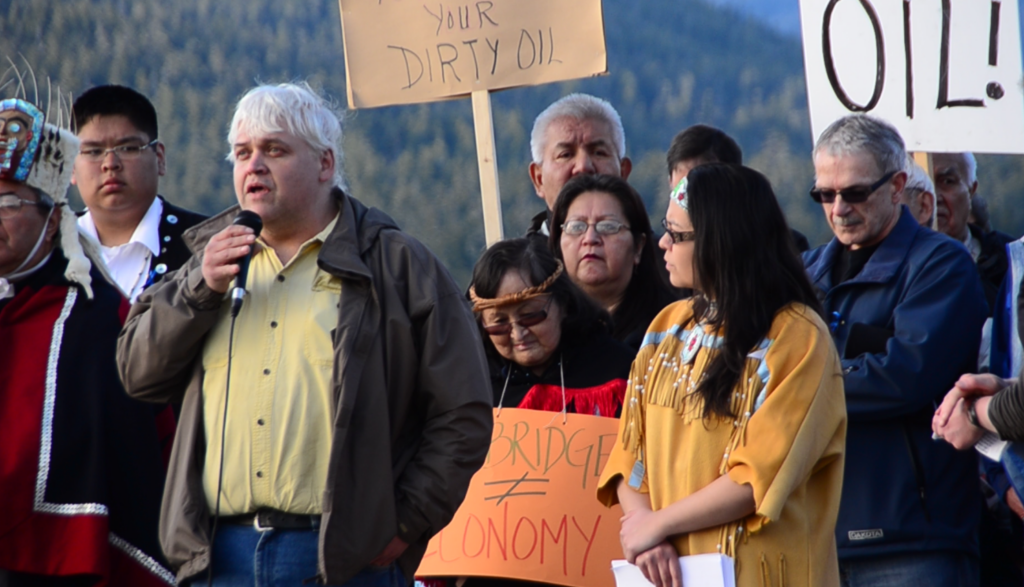A Scottish university in “Europe’s oil and gas capital” has voted to sell all of its fossil fuel investments over the next four years.
The University of Aberdeen, which has strong ties with the North Sea oil and gas industry, announced today that its governing body had voted to exclude fossil fuel extraction companies from its £52.7 million investment portfolio by 2025. It currently has an estimated £3.1 million invested in fossil fuels, according to campaigners.
The vote follows an eight-year campaign by students in the People & Planet network, who say the move makes Aberdeen the 12th university in Scotland, and the 90th in the UK, to divest from fossil fuels.
The university has close ties to the UK oil and gas sector, including research projects with the industry.
Members of its governing body, or “Court”, include Anne Minto, who held “global senior roles in the engineering, oil and gas industries”, according to her profile, and was human resources director at energy company Centrica.
Iain Percival, formerly global chief petroleum engineer at Shell, “played a key role in creating a campus ambassador programme” between Shell and the university, as well as establishing a new petroleum engineering degree, according to his biography.
The vote comes as the SNP-led Scottish government, which recently signed a cooperation agreement with the Scottish Green Party, is facing criticism over its ambiguous position on the proposed Cambo oilfield in the North Sea.
‘Win for Environmentalism’
Campaigners welcomed Aberdeen’s vote to divest and said it heaps pressure on other Scottish universities, in particular Robert Gordon University, also based in Aberdeen.
Alisa Koester, president of Aberdeen University Students’ Association and a supporter of the Fossil Free Aberdeen campaign, called the news “a massive win for environmentalism, students and our planet”.
Thanking the university and the students who supported the campaign, she added: “Fighting to make our planet liveable beyond now should not be perceived as a radical position. It is a position of humanity to ensure that future generations of students can learn and expand their horizons like we have.”
Laura Clayson, Campaign Manager on Climate Justice at People & Planet, said: “We are deeply encouraged by this hugely significant announcement from the University of Aberdeen.
“It shows that no matter your context, it is possible to listen to the voices of students, prioritise a just transition that centres the needs of workers in the region and move away from the companies complicit in the climate crisis all at once,” she added.
A University of Aberdeen spokesperson said: “Our Aberdeen 2040 strategy makes clear our commitment to show leadership in working for the sustainable future of our planet, and our decision to divest from fossil fuels relates directly to that commitment.
“We are pleased to have worked alongside the student community in the development of this policy, which makes clear our intention to work with the energy sector as part of a just transition to a greener, more sustainable future.
“In addition, by 2025 we will seek to invest at least 5% of our investment portfolio in a programme that will invest in businesses and sectors aiming to deliver an environmental, social and financial return across a range of sustainability themes.”
Kairin van Sweeden, an organiser with the Scottish National Party’s Common Weal group, called it “very positive news, especially for the young people of Aberdeen”.
Sweeden, who is also a claimant in a legal challenge by campaign group Paid to Pollute against the government’s support for continued North Sea oil and gas drilling, said: “Importantly, this decision acknowledges that the oil and gas industry has no long term future. Scottish people want investment shifted to the renewables industry, which they know will provide jobs now and sustain their communities in the long-term.”
Rosemary Harris, Just Transition Advocacy Campaigner at energy research group Platform, said: “For an institute like Aberdeen University to have taken this step, in a city known as Europe’s oil and gas capital, is not something to be taken lightly.
“The decision to divest should set an example to other institutions, and the UK government, that it is time to stop investing in fossil fuels and rapidly shift to renewable energy.”
She added: “For a successful shift to renewables the government must harness the skills and experience of workers, including addressing skills gaps and duplication, investing in training funds and creating good, secure jobs through large-scale investment that prioritises workers and communities.”
Subscribe to our newsletter
Stay up to date with DeSmog news and alerts







